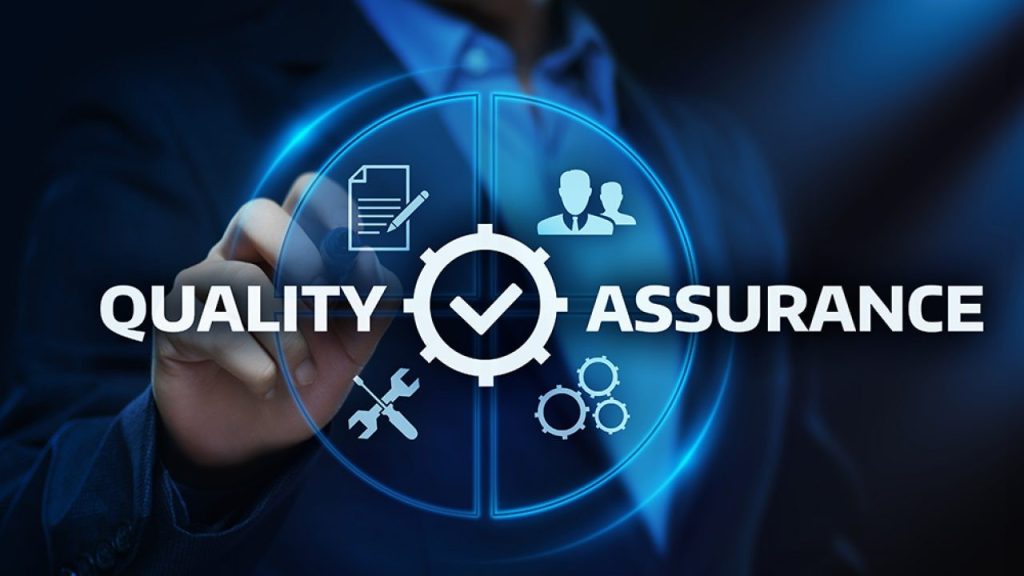Implementing quality assurance measures is essential for any business striving to deliver consistent and high-quality products or services. These measures help companies detect issues early, reducing costly mistakes and maintaining a strong reputation. Quality assurance (QA) measures streamline processes while ensuring compliance with industry standards and regulations. As businesses grow, implementing these measures becomes essential for sustaining operational efficiency and customer satisfaction.
The Importance of Quality Assurance
Quality assurance is more than just identifying defects in products. It plays a critical role in creating a culture of continuous improvement. By implementing quality assurance measures, companies can minimize waste, lower costs, and improve customer loyalty. In addition, an effective QA program can reduce downtime, ensuring that products or services consistently meet predefined standards.
One of the primary benefits of quality assurance is that it helps businesses meet industry regulations. Many industries, such as healthcare, manufacturing, and technology, have stringent compliance requirements. By adhering to a robust quality assurance framework, companies can avoid legal penalties, fines, and the potential harm to their reputation caused by non-compliance. Furthermore, it provides a competitive advantage, demonstrating a commitment to excellence in the marketplace.
Designing a Quality Assurance Plan
When implementing quality assurance measures, start by developing a detailed QA plan tailored to the organization’s specific needs. The plan should outline key processes, quality control standards, and performance metrics. A systematic approach helps identify problem areas early, allowing teams to address issues before they escalate. The QA plan must align with the company’s objectives, whether focusing on customer satisfaction, efficiency, or regulatory compliance. Incorporating these goals into actionable strategies ensures the plan’s effectiveness. Involving key stakeholders from various departments ensures everyone understands the importance of maintaining high standards. This promotes collaboration for the plan’s success.
Moreover, implementing quality assurance measures requires regular assessments and evaluations. These reviews will help businesses adapt to changing industry trends and customer expectations. Establishing benchmarks and key performance indicators (KPIs) can guide decision-making and allow organizations to measure their progress over time.
Building a Culture of Quality
Successful implementation of quality assurance measures relies on building a culture that prioritizes quality at every level. This involves engaging employees, fostering open communication, and encouraging a proactive approach to problem-solving. A robust training program can help employees understand the principles of quality assurance and how they can apply these in their day-to-day activities.
Employee involvement in QA processes is essential. Workers who feel empowered to identify and address quality concerns are more likely to contribute to the organization’s overall success. Regular feedback loops and team collaboration are vital components of maintaining high quality, as they ensure that issues are addressed promptly and efficiently.
In addition, leadership plays a crucial role in cultivating a culture of quality. By setting clear expectations and leading by example, management can create an environment where quality becomes a shared responsibility. Celebrating quality achievements and rewarding employees for their contributions further strengthens this commitment.
Leveraging Technology for Quality Assurance
In today’s digital landscape, technology plays a pivotal role in implementing quality assurance measures. Many businesses are leveraging automation tools, artificial intelligence (AI), and data analytics to enhance their QA processes. By automating routine quality checks, companies can reduce human error, speed up production, and ensure greater consistency across products and services.
AI and machine learning algorithms can analyze large datasets to predict potential quality issues before they occur. This allows businesses to take a more proactive approach in identifying bottlenecks and making necessary adjustments. Furthermore, integrating technology into quality assurance measures enables real-time monitoring, providing valuable insights into performance and ensuring that processes remain aligned with set standards.
Data analytics also supports decision-making by providing a clearer picture of how quality assurance efforts impact the organization. Using data, companies can optimize their processes, focus on areas needing improvement, and make informed choices about resource allocation. Implementing quality assurance measures with the help of technology not only improves accuracy but also allows businesses to be more agile in addressing challenges.
Quality Assurance in Different Industries
Implementing quality assurance measures can vary significantly depending on the industry. In manufacturing, for example, QA focuses on reducing defects in the production process and ensuring that each product meets specific safety and quality standards. On the other hand, in software development, QA involves extensive testing to identify bugs, security vulnerabilities, and performance issues.
Healthcare industries have particularly stringent QA requirements due to the sensitive nature of their services. Quality assurance measures in this field often include adherence to safety protocols, regular audits, and compliance with regulatory standards. Failure to implement effective QA measures in healthcare can lead to significant repercussions, including legal liabilities and compromised patient safety.
Regardless of the industry, businesses must customize their quality assurance plans to reflect the unique needs and challenges of their respective sectors. By doing so, they can ensure that their QA efforts are not only compliant with regulations but also tailored to enhance overall efficiency and customer satisfaction.
Continuous Improvement Through QA
Implementing quality assurance measures is not a one-time initiative but an ongoing process. Continuous improvement is a core component of any effective QA strategy. This involves regularly assessing and refining procedures to meet evolving industry standards, customer expectations, and technological advancements.
Regular audits and feedback from customers and employees are essential for identifying areas that require improvement. These insights can help businesses refine their processes and implement corrective actions that ensure higher quality moving forward. Moreover, fostering a mindset of continuous improvement ensures that organizations remain adaptable, agile, and able to navigate challenges in a dynamic business environment.
In conclusion, implementing quality assurance measures is fundamental to maintaining high standards, improving operational efficiency, and enhancing customer satisfaction. Companies that prioritize quality at every stage of their operations not only avoid costly mistakes but also build a stronger reputation in their industries. By focusing on a culture of continuous improvement and leveraging the power of technology, businesses can ensure that their quality assurance efforts remain effective and relevant in an ever-evolving marketplace.


